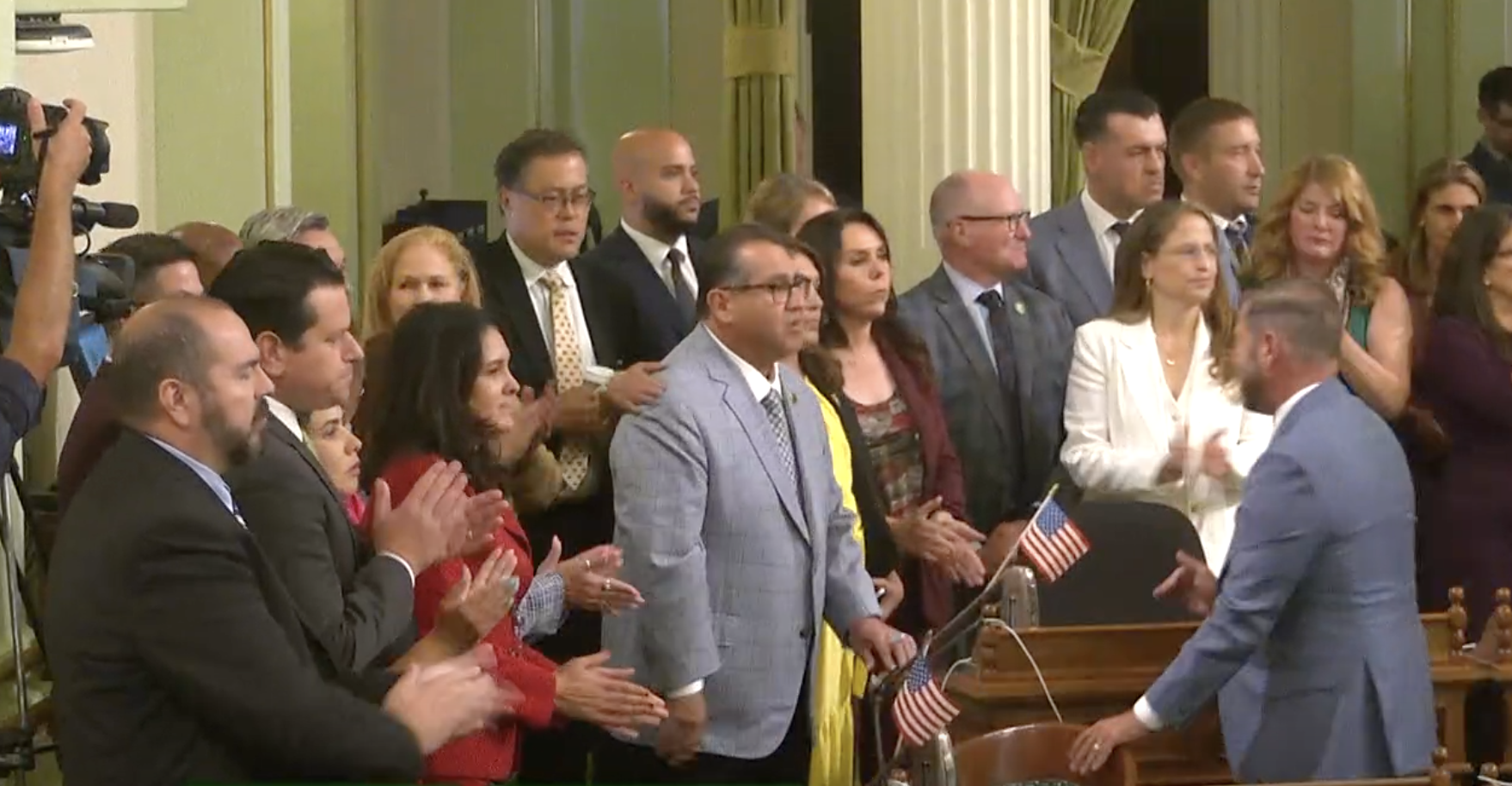
- Details
- By Levi Rickert
On Thursday, the California State Assembly engaged in a heated debate over the proposed redistricting of the state’s congressional map.
Assemblymember James C. Ramos (D-San Bernardino), the only Native American currently serving in the California Assembly, firmly challenged a colleague who invoked California tribes during the discussion.
“I have a colleague from San Bernardino who likes to always tell us how he fights for the tribes. But do you know this map splits tribal reservations?” asked Assemblymember Carl DeMaio (R-San Diego).
DeMaio argued that the proposed map divides several tribal reservations across different congressional districts.
“So much for the voice of the people,” DeMaio added.
Shortly after, Ramos took the floor, criticizing DeMaio for using Native American tribes to advance his political argument.
“I have to raise my mic and be able to talk when a colleague from the other side is talking about history, talking about California’s first people, drawing them into this conversation,” Ramos said.
Clearly angered, Ramos questioned where that concern was during the historical violence and displacement suffered by Native communities in California.
“When you start to exploit the history in the state of California for your own gain, it [is] the same tactics used when this land was stolen and murdered people of our culture to get it…you should be ashamed of yourself to bring in the history, because we all know in these chambers the atrocities, the genocide and the blood shed, and the bones that [are] still in the archives of many institutions in this state who still call our remains of our ancestors trophies,” Ramos said.
As Ramos spoke, his fellow Democratic colleagues rose from their seats to stand behind him as a gesture of solidarity.
Following the session, Ramos’s office released a statement that further clarified his stance:
“A few days ago, the Assembly acknowledged the long history of horrific atrocities committed against Native Americans living in California, including the War of Extermination, called for by the state’s first governor. Therefore, it was particularly odious to have California’s First People used so cynically today.
Redistricting does not erase tribal sovereignty, reservations, citizenship rights or power. As the Legislature’s first California Native American elected to the State Legislature, I found it offensive and hypocritical to bring the tribes into a highly contentious fight without seeking their input and assuming that this one colleague would know best what would serve Native Americans. This paternalistic approach toward Native Americans should no longer be tolerated by the state and this Legislature.”
The redistricting debate in California comes of the heels of the Texas Republicans redrawing congressional districts to favor Republicans who want to gain five additional congressional seats for the Republicans in the 2026 midterm election.
More Stories Like This
Native News Weekly (August 25, 2024): D.C. BriefsNavajo Nation Mourns the Passing of Former Vice President Rex Lee Jim
Deb Haaland Earns Endorsement From Communications Workers of America Local 7076
University Soccer Standout Leads by Example
Two Native Americans Named to Democratic Congressional Campaign Committee's“Red to Blue” Program
Help us defend tribal sovereignty.
At Native News Online, our mission is rooted in telling the stories that strengthen sovereignty and uplift Indigenous voices — not just at year’s end, but every single day.
Because of your generosity last year, we were able to keep our reporters on the ground in tribal communities, at national gatherings and in the halls of Congress — covering the issues that matter most to Indian Country: sovereignty, culture, education, health and economic opportunity.
That support sustained us through a tough year in 2025. Now, as we look to the year ahead, we need your help right now to ensure warrior journalism remains strong — reporting that defends tribal sovereignty, amplifies Native truth, and holds power accountable.
 The stakes couldn't be higher. Your support keeps Native voices heard, Native stories told and Native sovereignty defended.
The stakes couldn't be higher. Your support keeps Native voices heard, Native stories told and Native sovereignty defended.
Stand with Warrior Journalism today.
Levi Rickert (Potawatomi), Editor & Publisher


